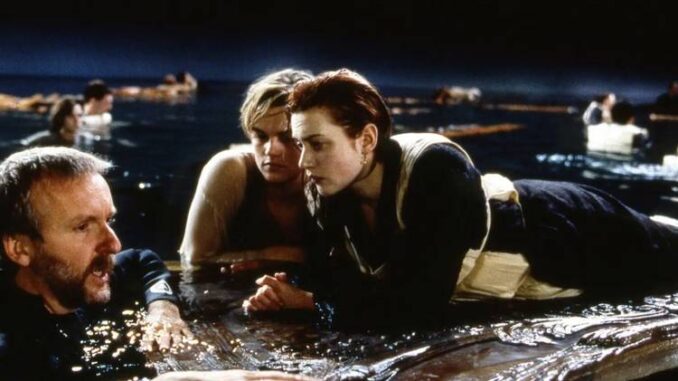
The Unsinkable Story: Titanic Claims the Number One Spot on Hulu
In a digital landscape teeming with fresh content, innovative series, and cutting-edge blockbusters, the recent news that James Cameron's 1997 epic, Titanic, ascended to the number one spot on Hulu's streaming chart feels both anachronistic and profoundly illustrative. This isn't merely a curious anomaly; it's a powerful signal, a cultural echo resonating through the algorithms, revealing deeper truths about our relationship with nostalgia, the enduring power of narrative, and the evolving nature of media consumption in the 21st century.
At its core, Titanic's resurgence on a modern streaming platform illustrates the unstoppable force of classic narrative. Before it was a streaming sensation, Titanic was a cinematic behemoth, a global phenomenon that transcended mere film to become a cultural touchstone. It combined meticulously researched historical tragedy with a sweeping, fictional romance, creating a story that appealed to virtually every demographic. Its ascent on Hulu reminds us that while the packaging changes, the fundamental human hunger for well-told tales of love, loss, courage, and catastrophe remains insatiable. The familiar arc of Jack and Rose's forbidden love, set against the backdrop of humanity's hubris and nature's indifference, is a mythic structure as old as storytelling itself, proving that certain narratives are, ironically, unsinkable.
Secondly, Titanic's digital triumph illuminates the potent draw of nostalgia and comfort viewing. For a significant portion of Hulu's audience, Titanic isn't a new discovery; it's a return to a cherished memory. For millennials and Gen X, it conjures images of packed cinemas, Leonardo DiCaprio fan clubs, and the indelible "King of the World" moment. Watching it again is akin to slipping into a familiar, comforting sweater – a journey back to a simpler time, perhaps, or a reaffirmation of the emotional power that originally captivated them. In an increasingly complex and often anxiety-inducing world, the predictable emotional beats of a story whose ending is universally known offer a peculiar kind of solace. We know the ship sinks, we know the heartbreak, yet we willingly dive back in, perhaps to process grand tragedy from a safe intellectual distance, or simply to re-experience profound emotion without real-world risk.
Moreover, this phenomenon underscores the democratic and often serendipitous nature of streaming algorithms. Unlike the curated premieres of cable or the theatrical release schedule, streaming services offer a vast, always-on library where any title, old or new, can suddenly catch fire. Perhaps a snippet went viral on TikTok, a celebrity mentioned it in an interview, or simply, its availability coincided with a general public craving for grand escapism. Hulu didn't "release" a new Titanic; they simply had it. Its rise to the top illustrates how accessibility, combined with the inherent virality of online culture, can breathe new life into existing content, transforming a library title into a trending event purely through user engagement and algorithmic nudges. It's a testament to the idea that in the streaming age, cultural relevance can be spontaneously ignited, not just meticulously planned.
Finally, Titanic topping the charts serves as an illustrative mirror reflecting our collective fascination with spectacle and disaster. There's a morbid curiosity, a psychological draw to observing humanity pushed to its limits, grappling with forces beyond its control. The sinking of the Titanic was a real-world event of immense tragedy and human drama, and Cameron's film leveraged every technological advancement of its time to render that spectacle with stunning realism. In an era of constant global crises, watching a meticulously recreated, contained disaster from the past can offer a strange catharsis, a way to vicariously experience the profound without direct personal cost. It speaks to our enduring need to understand catastrophe, to witness courage, and to contemplate the fragility of life and the audacity of human ambition.
The Titanic reigning supreme on Hulu is more than just a fleeting chart statistic. It's an illustrative essay writ large on the screen of contemporary culture, reminding us that truly great stories are timeless. They transcend their original medium and era, finding new audiences and new significance in the ever-evolving landscape of how we consume media. It proves that whether on the silver screen or a laptop, a legendary love story against an epic tragedy remains, for all its emotional devastation, truly unsinkable.